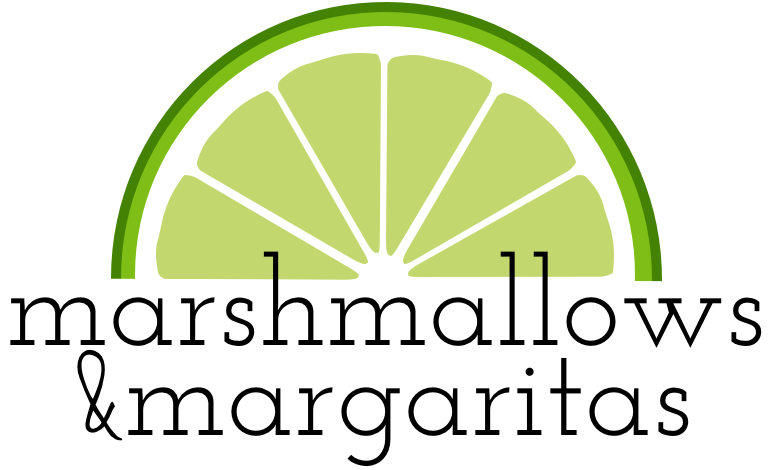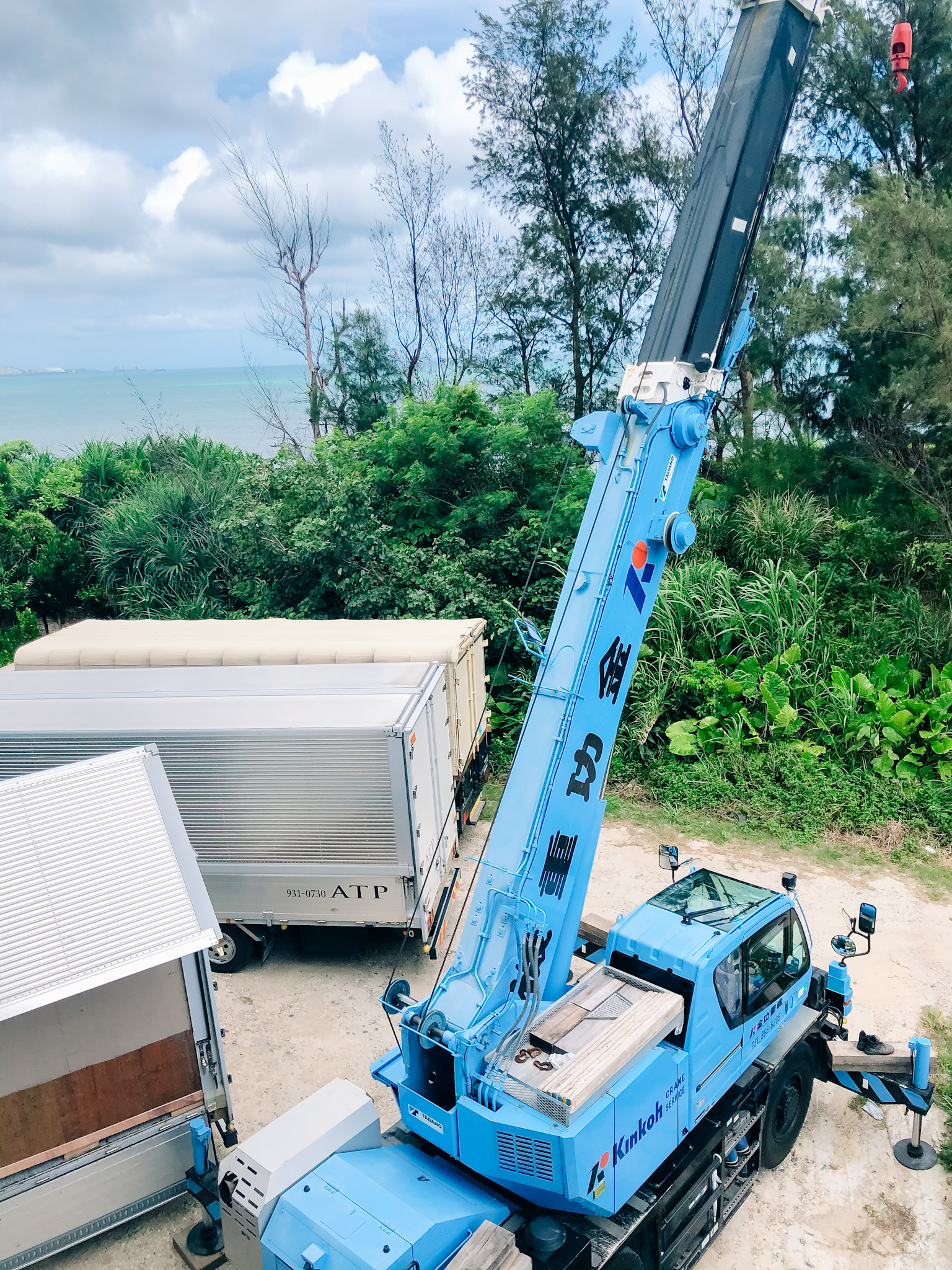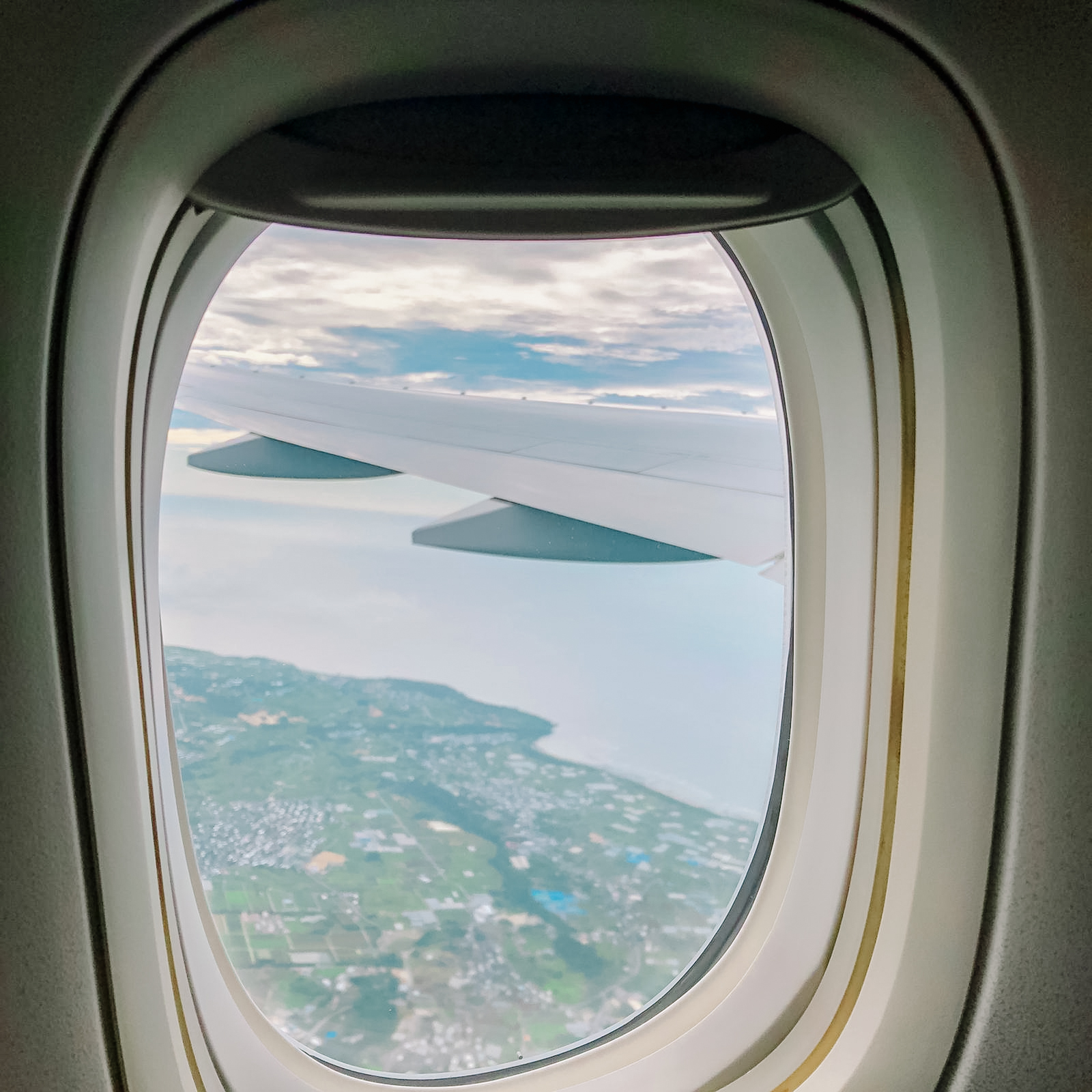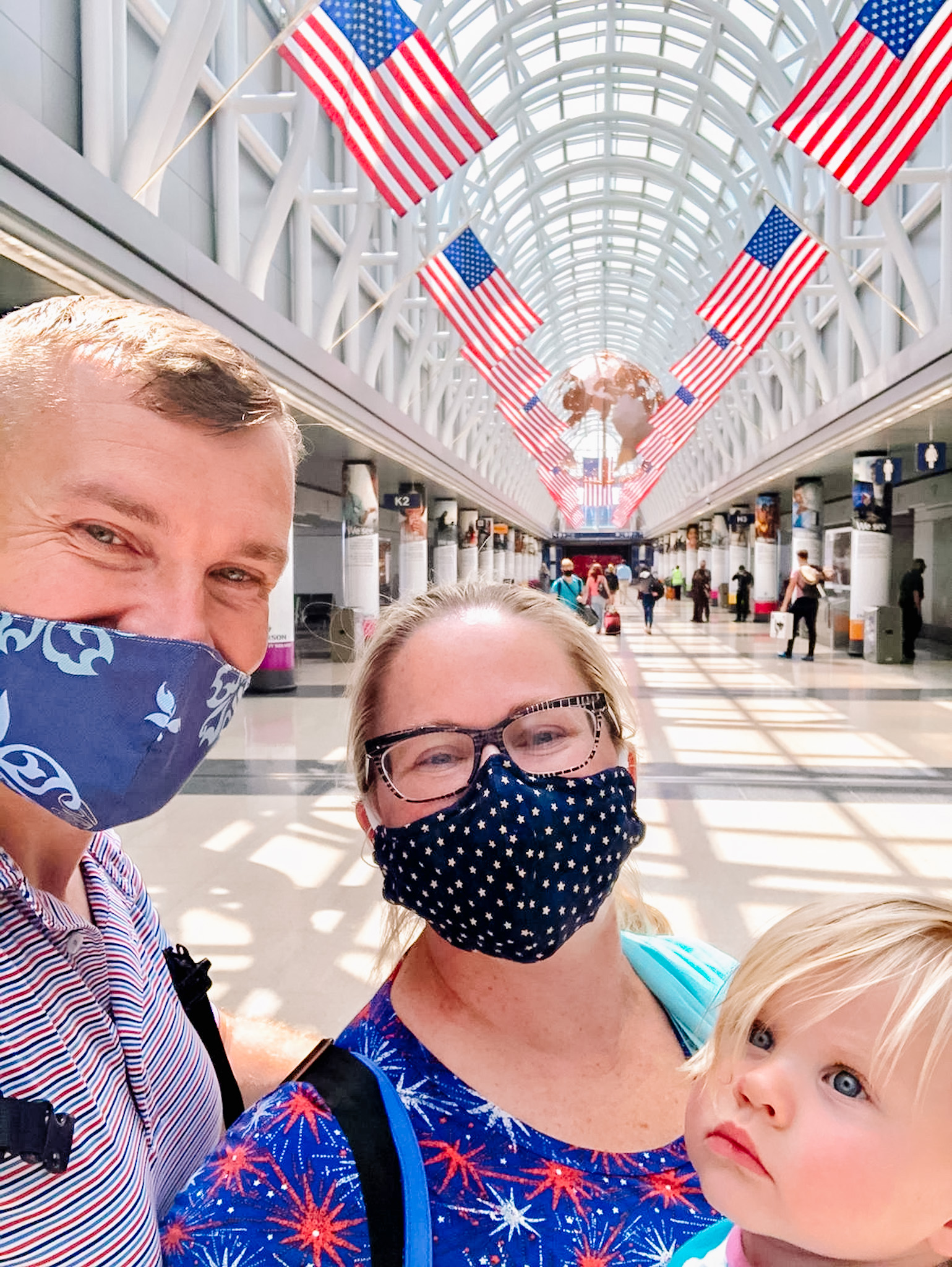Moving halfway across the globe is never easy. But add in a global pandemic, a stop movement order, local travel restrictions, and children, and a permanent change of station move outside the continental United States becomes pretty overwhelming.
In 13 years as a Marine Corps spouse, I’ve been through more than my share of moves; moving from Okinawa, Japan, back to the DC area was our third OCONUS PCS and our seventh move as a married couple. I also had moved several times before I met Toby, including a few overseas moves, so this was definitely not my first rodeo.
However, our most recent PCS was different for us from the start. We were in Okinawa on three-year orders, but found out in December 2019 that we were leaving the beautiful island after just two years so Toby could go to a military school. I had a long list of things I wanted to do, taste, and experience before we left Oki, and not much time to check those off. I also had Arabella while we were living in Japan, so I was concerned about the logistics of a move and how it would affect her.
Then, COVID-19 hit.
No clear guidance
At first, I wasn’t sure if we would even move, and if we did, I didn’t expect it to be at the same time as originally planned. We didn’t hear much from the Marine Corps or Toby’s school, so we were making decisions based on the restrictions in Okinawa and what we were reading about the U.S. That uncertainty, plus the DOD stop movement order, led us to push back the dates for nearly every part of our move: having our household goods packed up, moving into a military lodge, and the flight out of Okinawa.
We also had to figure out what to do after we moved out of our off-base apartment. Several of our friends opted to live in their homes for weeks after movers took their furniture, but we didn’t have any government loaner furniture, and I couldn’t imagine living in an empty apartment for weeks in a foreign country with a baby. We also knew we couldn’t take a vacation on our way back to the U.S. (as we had originally planned), would have to quarantine for 14 days when we arrived, and likely wouldn’t be able to see our families, either, because of COVID-19 concerns.
Movers and masks
Overseas movers are exponentially better than American movers (sorry, not sorry), so I wasn’t THAT worried about our stuff. But I found it pretty ridiculous that we had several weeks where we weren’t allowed to get delivery or drive-through food, or to have our babysitter come to our home, but then were forced to let a crew of Japanese movers into our apartment. Sure, there were rules about everyone wearing masks, and we could have turned the crews away if they didn’t all sign something saying they hadn’t had any recent symptoms, but I’m not sure what the alternative was supposed to be.
We chose to move into the hotel the night before the move, then Arabella and I stayed on base all day while Toby stayed at the house with the movers. It worked out OK, but certainly wasn’t ideal.
And while I normally would have wanted to avoid the Patriot Express—a weekly military flight from Japan to the U.S.—at all costs, I couldn’t imagine flying commercial from Japan to DC during a pandemic.
Flying across the world
It turns out I didn’t have to imagine it. After some shuffling due to logistical issues, we were booked on a commercial flight out of Okinawa on July 4, while friends were booked on the Patriot Express.
Our flight was fine—nearly 24 hours of travel with a 15-month-old baby was never going to be a relaxing experience—and nearly everyone on all three of our planes was also part of a military family traveling from Okinawa. We did have some problems with the car seat and the stroller that we we wouldn’t have had on military air, but we were able to fly on half-full, spaced out planes, at a time when most military flights from that region were completely full.
In contrast, our friends on military flights told me they were packed onto planes, then crammed into small waiting areas for hours at each of the flight’s stops on its way out of Japan. Sounds like a recipe for disaster, but luckily, no one I know got sick.
Culture shock
Some of the challenges we experienced—like baby jet lag—had nothing to do with COVID-19, but many things—like not being able to easily sell our Japanese cars, having to go directly to DC without seeing our families or picking up our American car, having to wear masks for the entire journey, and spending two weeks stuck in a hotel in Virginia were definitely 2020-specific problems.
And, since we were coming from an island that had zero new COVID-19 cases for 60 days before we left, we also were worried about being exposed to the virus in transit. It was bizarre having come from a country that uses masks regularly and takes public health advice pretty seriously, to the U.S., where there were a lot more cases and a lot fewer rules and restrictions.
We were very lucky, though. Shortly after we left, Okinawa had a big COVID-19 outbreak — probably brought in by an American service member or military family — and the military imposed super strict restrictions that left some of our friends stuck in a hotel room with two young kids and very few options for food or going outdoors. And while quarantine in Okinawa is legit — you are not even allowed to step over the threshold of your hotel room door for two weeks — it’s much less so in the U.S. We were able to use the laundry facilities, go to the grocery store, and drive by our new home a few times.
Overall, the experience was stressful and had some factors that a normal OCONUS PCS move would not have had, but it wasn’t nearly as bad as I had thought it would be. I miss Oki every day, but we’re adjusting.





